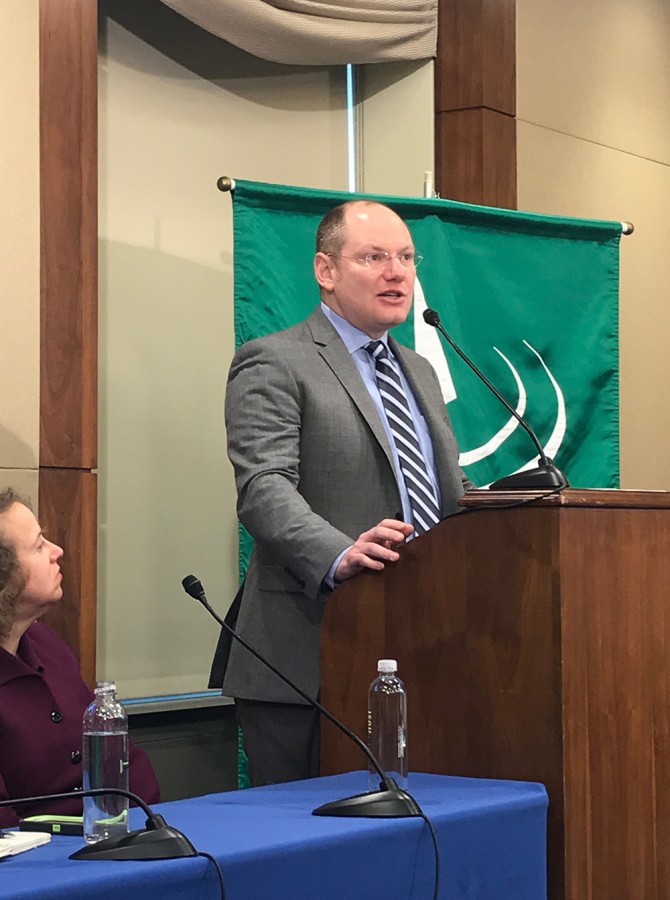ILR expert talks on the future of work to D.C. policymakers
By Rachel Rhodes
Technological advancement is not new in the American economy, but it is novel that workers can achieve productivity through digital platforms outside of corporations, said Louis Hyman.
Hyman, associate professor of economic history in the ILR School and director of the Institute for Workplace Studies, spoke to policymakers in Washington, D.C., Nov. 13 in a briefing sponsored by the National History Center. The briefing focused on how technological innovation is transforming work, and how insights from the past inform responses to the 21st-century wave of automation.
On the rapid rise of automation and artificial intelligence, Hyman said: “I think we should use this moment as an opportunity to think about our long-held American values. Rising industrialization in the 19th century, for instance, threatened to turn us into a nation of wage-earners dependent on a boss for a wage. Low wages were part of the problem, but wage labor itself was a problem in which one did not have freedom to control one’s own work. This was a greater threat to our visions of independence and democracy.”
Independence and self-determination are historically significant parts of the American dream, and are manifested in government support of farming and homesteading prior to industrialization and manufacturing jobs after industrialization. Hyman said: “We should not be romanticizing manufacturing jobs. For many that were excluded from these jobs, especially women and African-Americans, the rest of the economy was not so glorious. But even for the white men with good manufacturing paychecks, working on an assemblyline or in a mine was dehumanizing, back-breaking and, most importantly, soul-breaking work. Humans should never do the work of machines. So as we think about policies that promote independent income, it might not look like the 19th or 20th centuries. Rather, being creative, caring and curious is what will define the human in the 21st century.”
Hyman’s research focuses on the history of capitalism in the United States, and he is currently completing a book on the rise of temporary labor in the postwar U.S. and its effects on the organization of American corporations. Technological change is part of the history of capitalism, Hyman said. Rather than automation or any particular technology, what is truly different about the 21st century is the decline in relevance of the corporation and the rise of the independent workforce.
“It is no surpise that in conversations about automation we often slip into a conversation about freelancers and the gig economy, about how Americans are working,” Hyman said. “From 2005 to 2015, 94 percent of net new jobs came outside of the traditional realm of full-time permament employment. These jobs are for contractors, consultants, temps, freelancers and comprise nearly all of the economic growth of the second industrial revolution. The world of the wage is giving way to the world of the independent workforce.” In terms of productivity, he said, this reorganization of labor is just as shocking as the technology itself.
The larger question, according to Hyman, is the type of work that humans should be doing in the age of automation. “My belief is that every human is capable of doing more creative, caring and curious work. Just as we don’t all go out to the fields to thrash the wheat, we should let robots fold our towels. By not taking advantage of these human resources, we are squandering our resources just as we are our natural resources,” he said. “The challenge of the 21st century will not be defending our robot-like jobs, but discovering what is valuable in being human.”
Rachel Rhodes is a public affairs and media relations specialist in Cornell’s Washington, D.C., office.
Media Contact
Get Cornell news delivered right to your inbox.
Subscribe